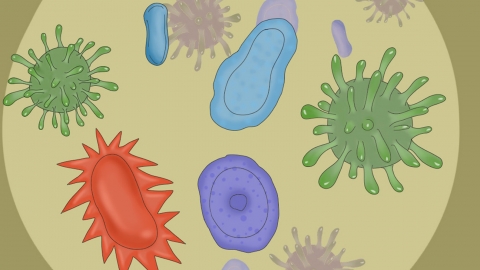What are the common intestinal pathogenic bacteria?
Common intestinal pathogens generally include Escherichia coli, Salmonella, Shigella, rotavirus, norovirus, and others. A detailed breakdown is as follows:

1. Escherichia coli
Escherichia coli is a Gram-negative bacillus that parasitizes in the human intestine. When the body's immunity decreases or the number of E. coli increases, it can trigger an inflammatory response, leading to intestinal discomfort and causing diseases such as acute enteritis, chronic enteritis, and diarrhea.
2. Salmonella
Salmonella is a Gram-negative bacillus with strong infectivity. It is mainly transmitted to humans through contaminated food or water, causing diseases such as typhoid fever, paratyphoid fever, and food poisoning.
3. Shigella
Shigella is a Gram-negative bacillus primarily parasitizing in the human intestine. Shigella infection is usually transmitted through ingestion of contaminated food or water, causing diseases such as bacterial dysentery and enteritis, which manifest as symptoms like diarrhea, abdominal pain, and mucopurulent bloody stools.
4. Rotavirus
Rotavirus is a double-stranded RNA virus that is primarily transmitted via the fecal-oral route. It can cause viral enteritis, and patients may experience symptoms such as fever, diarrhea, and vomiting.
5. Norovirus
Norovirus is a calicivirus that parasitizes in the human intestine. Norovirus is usually transmitted through food or water and spreads rapidly, causing symptoms such as diarrhea, vomiting, and fever.
In daily life, it is important to maintain food hygiene and personal hygiene habits to reduce the risk of infection by these pathogens.







